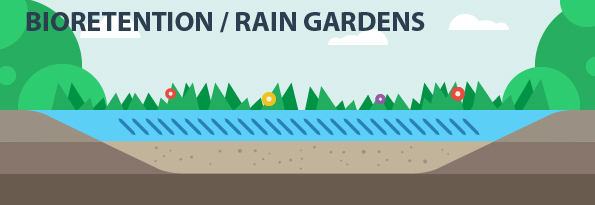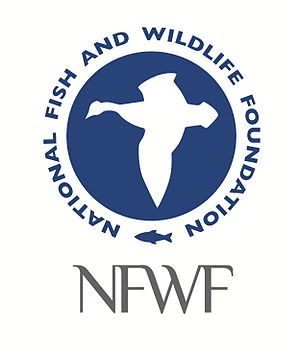CleanScapes Communities

Parts of the Chesapeake Bay watershed contain a high percentage of impervious cover – paved or other hard surfaces such as roofs and roadways that prevent rain water from being absorbed into the ground. Instead, water runs along these surfaces, collecting trash and substances such as motor oil, lawn fertilizers, and pesticides. This polluted stormwater flows into streams and rivers, where it threatens aquatic ecosystems and public health.
Effective stormwater management, on the other hand, creates safe paths for polluted runoff to be captured and filtered through the ground before it reaches waterways. This helps keep the environment clean and our communities healthy!

Project Location: Howard County, MD
Problem: Fertilizers and grass clippings from residential lawns were polluting local streams during big storm events. When excess organic material decomposes in water, it uses significant amounts of oxygen leaving less for the organisms in the ecosystem. Many land owners and landscape companies were unaware that they were contributing to phosphorous pollution and water quality problems in the nearby Little Patuxent River. Education and retraining were needed to approach projects in a cleaner, more responsible way.
Solution: Howard County CleanScapes Communities program educates residents and local landscape companies through workshops, newsletters, and signage at 28 newly installed rain gardens in neighborhoods adjacent to the Little Patuxent River. Residents receive a credit towards their county Watershed Protection Fee for the amount of impervious surface they are treating relative to their onsite impervious area. Thanks to this program and the support of National Fish and Wildlife Foundation (NFWF), Village Gardeners landscape company is now advocating for healthier ways to beautify the landscape and preserve water quality too.
Cost: $70,000 for 28 new residential rain gardens, approx. 200 SF each
Funding Sources: $20,000 grant from NFWF, matched with $50,000 from Howard County
Partners:
• Village Gardeners and Howard EcoWorks (landscape design and installation services)
• Alliance for the Chesapeake Bay (marketing)
• Chesapeake Bay Landscape Professionals (professional landscape certification)
More Info: https://www.cleanwaterhoward.com/what-is-your-role/residential-properties/cleanscapes



